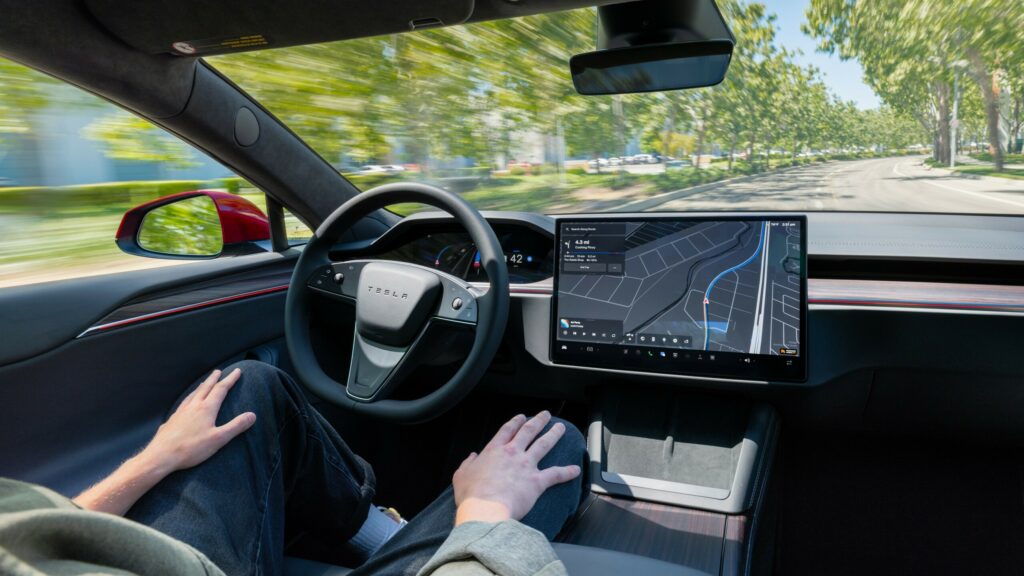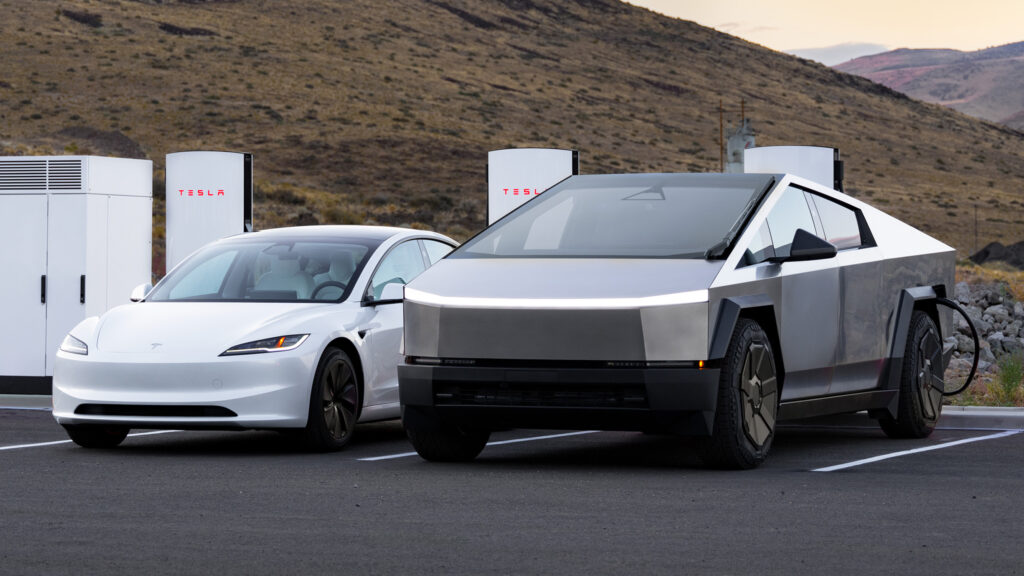Tesla Could Lose Its Right To Sell Cars In California

- Tesla will face a five-day hearing in California over claims of misleading consumers.
- California’s DMV accuses Tesla of overstating its driver-assistance system capabilities.
- The regulator is reportedly seeking to suspend or revoke its dealer license in the state.
Tesla is facing mounting regulatory pressure in California as it prepares to defend how it markets its Autopilot and Full Self-Driving features. The hearing, set for next week, stems from earlier claims by the California Department of Motor Vehicles (DMV) that the company misled consumers about the true capabilities of its driver-assistance systems.
var adpushup = window.adpushup = window.adpushup || {que:[]};
adpushup.que.push(function() {
if (adpushup.config.platform !== “DESKTOP”){
adpushup.triggerAd(“0f7e3106-c4d6-4db4-8135-c508879a76f8”);
} else {
adpushup.triggerAd(“82503191-e1d1-435a-874f-9c78a2a54a2f”);
}
});
The outcome could have significant consequences for Tesla’s business in California, as regulators are weighing whether to suspend or revoke the company’s dealer license, which authorizes it to sell vehicles in the state.
More: Tesla Penalized Over A Word In Driver Assistance Tests And It Could Cost Them More Than A Score
The case dates back to July 2022, when the California DMV alleged that Tesla overstated what its Autopilot and Full Self-Driving systems could do. According to the complaint, marketing materials gave the impression that Tesla vehicles were “able to conduct short and long-distance trips with no action required in the driver’s seat.”
Hearing Could Affect Tesla’s Operations in California
In June 2025, a California judge declined to dismiss the claims, ordering Tesla to appear before an administrative law judge in Oakland. The five-day hearing is set to begin Monday. As reported by Bloomberg, the regulator is seeking to suspend or revoke Tesla’s dealer license in California, putting the company’s ability to sell vehicles in the state at risk.
Tesla’s legal team argues that the contested marketing language is protected under free speech, and that statements about the company’s autonomous driving capabilities were taken out of context – omitting the disclaimers and warnings that the Autopilot requires “active driver supervision.”

Robotaxi Ambitions Add to the Stakes
var adpushup = window.adpushup = window.adpushup || {que:[]};
adpushup.que.push(function() {
if (adpushup.config.platform !== “DESKTOP”){
adpushup.triggerAd(“bb7964e9-07de-4b06-a83e-ead35079d53c”);
} else {
adpushup.triggerAd(“9b1169d9-7a89-4971-a77f-1397f7588751”);
}
});
At the same time, Tesla is seeking regulatory approval to expand its robotaxi program in San Francisco. If granted, a fleet of Tesla Model Y vehicles would operate autonomously, albeit with human supervision and within a geo-fenced area, The move would place Tesla in direct competition with Waymo, which already provides similar services in the city.
Separate Trial in Florida Raises Broader Safety Questions
Meanwhile, Tesla is embroiled in a jury trial in Miami over a 2019 crash involving a Tesla Model S that struck and killed a pedestrian. The jury must decide whether Tesla’s Autopilot system shares blame with the vehicle’s distracted driver. Similar fatal crashes involving Autopilot are under regulatory investigation, with more trials expected in the coming years.
In the Miami trial, the plaintiffs called engineering professor and former Navy pilot Mary “Missy” Cummings as an expert witness. She criticized the Autopilot branding, saying it creates unrealistic expectations based on its aviation counterpart.
var adpushup = window.adpushup = window.adpushup || {que:[]};
adpushup.que.push(function() {
if (adpushup.config.platform !== “DESKTOP”){
adpushup.triggerAd(“b25ecba7-3bbb-4ea7-a3a8-dbea91695c07”);
} else {
adpushup.triggerAd(“e46c436a-adeb-4b5e-a2c7-56bc36561c10”);
}
});
More: This City Could Be Tesla’s Toughest Robotaxi Challenge Yet
“It engenders a lot more inappropriate confidence in the car, because autopilot is such a good technology in aviation,” Cummings said. “Somehow, we feel like that is going to translate to a really effective tech in the car.” She added that the term leads to “a mismatch in the consumer’s head.”
Tesla maintains that remarks about autonomous driving without human involvement are “future-facing” and “don’t reflect the current technology”. The Tesla Autopilot is currently classified as a Level 2 ADAS, as it requires continuous driver supervision. Elon Musk has repeatedly predicted that Tesla would reach full autonomy (Level 5), but these goals have not materiliazed
